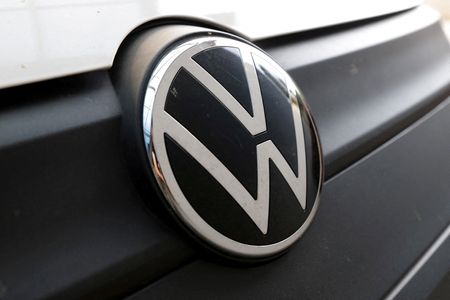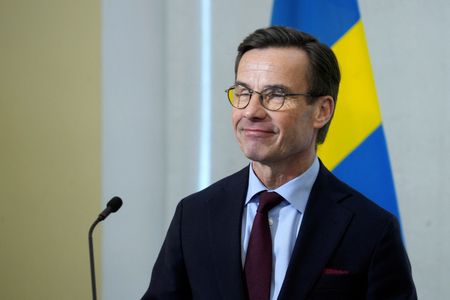By Gwladys Fouche
OSLO (Reuters) -Norway’s $2 trillion wealth fund is maintaining pressure on companies it invests in to cut their greenhouse gas emissions to net zero by 2050, it said on Wednesday, despite the growing U.S. backlash against climate-friendly policies.
The world’s largest sovereign wealth fund first formulated the goal of bringing all 8,500 companies in its portfolio in line with the Paris Agreement target in 2022.
In its newly updated climate plan, the fund said it would continue to do so and would increase the pressure somewhat, by for instance increasing its scrutiny of companies’ lobbying on climate change.
It also said it could vote against the board of a company if the fund disagreed with its approach on climate change. It could also file its own shareholder proposals on the issue.
“Climate risk is financial risk,” said the plan. “The fund therefore has an interest in an orderly transition to global net zero emissions.”
NORWAY FUND CONTRASTS WITH INTENSIFYING US CLIMATE BACKLASH
The fund’s updated guidelines come at a time when some international investors are backing away from ESG policies on climate change.
U.S. President Donald Trump’s administration is, meanwhile, boosting fossil fuel production, rolling back climate policies at home, and working against international climate initiatives abroad, including withdrawing from the Paris climate agreement.
The wealth fund, which manages the Norwegian state’s revenues from oil and gas production, has invested about half of its value, or about $1 trillion, in the U.S., across bonds, equities and real estate.
Fund CEO Nicolai Tangen told Reuters he had discussed the risk of a possible backlash from the U.S. to the plan with the board of the central bank, among other issues.
Still, the plan will go because “it’s our money and we have to safeguard our investments the way we see fit,” he said in an interview.
He declined to say whether the risk of a U.S. backlash had been discussed with the ministry of finance.
DIALOGUE PRIORITISED OVER DIVESTMENT
Some close observers of the fund cautiously welcomed the plan.
“The fund’s commitment to increased scrutiny of corporate policy advocacy as it relates to climate change is new and very welcome, as is the explicit acknowledgement of voting against boards as an escalation tool,” said Brynn O’Brien, Executive Director of the Australasian Centre for Corporate Responsibility, an advocacy group.
But she and others noted the threshold for the fund to take escalating steps, should engagement with a company not lead to change, was lacking.
“The real test for the fund is how they deal with companies not willing to meet expectations. Sadly, the plan is almost devoid of any strategy to influence those companies still unwilling to transition,” Diego Foss, Programme Co-Lead at the Nordic Center for Sustainable Finance, told Reuters.
In response, the fund says engagement leads to more effective results than divestment.
“Engagement is our main tool. Divestment does not take down emissions,” Carine Smith Ihenacho, the fund’s Chief Governance and Compliance Officer, told a seminar launching the plan.
The plan presented on Wednesday is mostly distinct from the ethical guidelines set by parliament, which lead to regular divestments by the fund.
(Reporting by Gwladys Fouche in Oslo; Editing by Joe Bavier and Toby Chopra)











